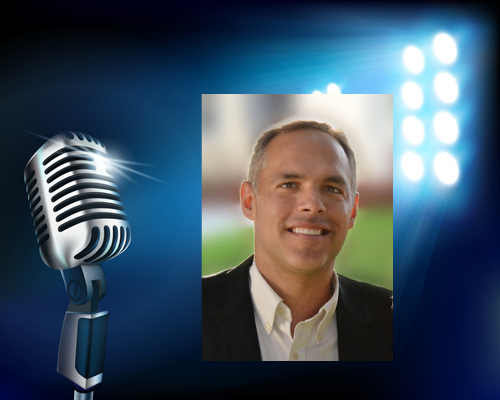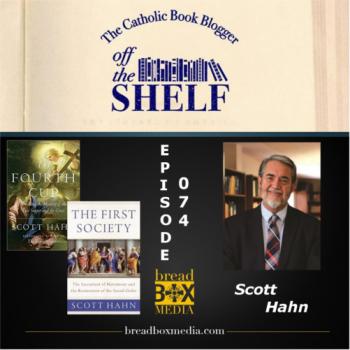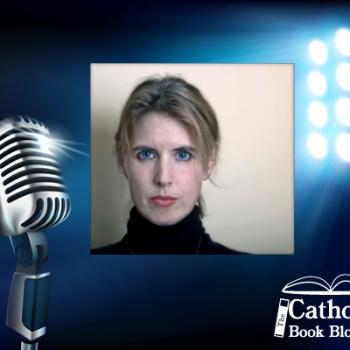 This week I had a chance to interview Dr. Christopher Kaczor about his latest book The Gospel of Happiness. Dr. Kaczor (rhymes with razor) is Professor of Philosophy at Loyola Marymount University and is in the James Madison Society of Princeton University. He graduated from the Honors Program of Boston College and earned a Ph.D. four years later from the University of Notre Dame. A Fulbright Scholar, Dr. Kaczor is a former Federal Chancellor Fellow at the University of Cologne and William E. Simon Visiting Fellow in the James Madison Program at Princeton University. His twelve books include The Gospel of Happiness, The Seven Big Myths about Marriage, A Defense of Dignity, The Seven Big Myths about the Catholic Church, The Ethics of Abortion, O Rare Ralph McInerny: Stories and Reflections on a Legendary Notre Dame Professor, Thomas Aquinas on the Cardinal Virtues; Life Issues-Medical Choices; Thomas Aquinas on Faith, Hope, and Love; The Edge of Life, and Proportionalism and the Natural Law Tradition. Dr. Kaczor’s views have been in The New York Times, The Washington Post, The Wall Street Journal, The Los Angeles Times, Huffington Post, National Review, NPR, BBC, EWTN, ABC, NBC, FOX, CBS, MSNBC, TEDx, and The Today Show.
This week I had a chance to interview Dr. Christopher Kaczor about his latest book The Gospel of Happiness. Dr. Kaczor (rhymes with razor) is Professor of Philosophy at Loyola Marymount University and is in the James Madison Society of Princeton University. He graduated from the Honors Program of Boston College and earned a Ph.D. four years later from the University of Notre Dame. A Fulbright Scholar, Dr. Kaczor is a former Federal Chancellor Fellow at the University of Cologne and William E. Simon Visiting Fellow in the James Madison Program at Princeton University. His twelve books include The Gospel of Happiness, The Seven Big Myths about Marriage, A Defense of Dignity, The Seven Big Myths about the Catholic Church, The Ethics of Abortion, O Rare Ralph McInerny: Stories and Reflections on a Legendary Notre Dame Professor, Thomas Aquinas on the Cardinal Virtues; Life Issues-Medical Choices; Thomas Aquinas on Faith, Hope, and Love; The Edge of Life, and Proportionalism and the Natural Law Tradition. Dr. Kaczor’s views have been in The New York Times, The Washington Post, The Wall Street Journal, The Los Angeles Times, Huffington Post, National Review, NPR, BBC, EWTN, ABC, NBC, FOX, CBS, MSNBC, TEDx, and The Today Show.
______________________________________________________________________________
PETE: It seems many people I encounter in the secular world are unhappy for various reasons. In your research for your book The Gospel of Happiness: Rediscover Your Faith Through Spiritual Practice and Positive Psychology, did you find any glaring reasons why?
CHRISTOPHER KACZOR: You are right that many secular people feel a deep sense of unhappiness despite having all their basic bodily needs met. We are not merely bodily creatures. Material things alone can never perfectly satisfy us. People can be tempted to think, “if I just get more money, or more power, then I’ll be happy.” But the reality is that we get used to having whatever amount of power or money we have, and soon we seek still more. It can, however, be a mistake to think of happiness in terms of “either I have it or I do not have it.” In writing this book, I discovered new ways in which to become happier, and I hope that many people will become happier as a result of reading it.
PETE: How do you feel your book can help people rediscover the happiness they are missing?
CHRISTOPHER KACZOR: Fortunately, many contemporary psychologists have studied practices that lead to greater happiness. They have studied these ways as they study medications with double-blind empirically verifiable results. What they found was that many traditional Christian practices such as gratitude, forgiveness, serving neighbor and prayer do indeed increase happiness. In The Gospel of Happiness, I talk about these findings as well as ways in which psychology can help Christians live better lives.
PETE: You talk a lot about positive psychology and Christian faith and how they in fact overlap. For those who have not yet read your book, how can one’s spiritual life as a Catholic directly affect their happiness and outlook on life?
CHRISTOPHER KACZOR: The spiritual life and the pursuit of happiness are intertwined. The spiritual life is ultimately about increasing love for God and love for neighbor. The psychological research suggests that love is the most important element of happiness. Indeed, the lead researcher of the longest running study at Harvard University, the Grant Study, concluded that, “Happiness is love, full stop.” When we love God and love neighbor better, we become happier. When we fail in love, even if we have a lot of money, power, or fame, our happiness is diminished.
PETE: In the seven chapters of your book you cover happiness; faith, hope and love; prayer; gratitude; forgiveness; virtue; and willpower. These are all important spiritual traits of a believer in Christ. Which of these chapters do you think is the most transforming and people will get the most out of?
CHRISTOPHER KACZOR: I think that the final chapter on increasing willpower may be the most helpful to people. Whether we call it weakness of will or lacking self-control, we have all had the experience of knowing what is right, yet doing what is wrong.
Fortunately, scientists studying weakness of will have recommended several remedies that can help anyone struggling with temptation. Christians hoping to be more faithful in living out their vocation can learn much from this research.
Psychologist Roy Baumeister pointed to a link between external order and internal strength. For instance, if you have trouble resisting dessert, you may want to clean your house to boost self-control.
We all sometimes experience weakness of will. What we should not do after we lapse is say to ourselves things like, “I’ve already blown my diet, I might as well eat the whole thing,” or “I’ve committed one mortal sin, I might as well commit more sins.” Willpower slips can lead to even more failures in an effort to relieve unhealthy guilt and anxiety about the failure. Following the example and teaching of Jesus, we should extend compassion, forgiveness and mercy to all human beings, including ourselves.
One way to avoid such lapses is through what researchers call “pre-commitment.” As much as we can, we should make it so that there is “no way out” for us when we foresee we may have weakness of will. In 1519, Hernan Cortes exercised pre-commitment when he burned his ships so that his men would not be tempted to turn back.
Willpower is something every Christian needs, and contemporary science can help us in this endeavor. To know the right thing is wonderful. To do the right thing is even better and I’ve communicated some findings about improving willpower in the last chapter of The Gospel of Happiness.
PETE: Time for my signature ending question. This is a blog about books. What books are currently on your bookshelf to read?
CHRISTOPHER KACZOR: At the moment, I’m reading Dietrich von Hildebrand, Transformation in Christ, Ryan T. Anderson, Marriage: What It Is, Why It Matters, and the Consequences of Redefining It, and Dale Carnegie, How to Win Friends and Influence People.











